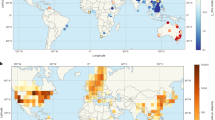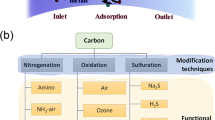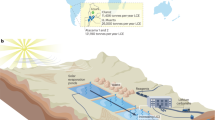Abstract
NATURAL fresh waters thicken the protective surface oxide film of aluminium and most such waters can be handled in aluminium tanks, pipes and equipment, provided the wall thickness is adequate. There is no general corrosion or thinning of the aluminium and if corrosion does occur it takes the form of pitting. It has been shown that the rate of penetration by pitting follows a cube root law1. The law predicts that to double the wall thickness will increase the time to penetration eight-fold; hence the importance of wall thickness in designing aluminium equipment to handle water is evident.
This is a preview of subscription content, access via your institution
Access options
Subscribe to this journal
Receive 51 print issues and online access
$199.00 per year
only $3.90 per issue
Buy this article
- Purchase on Springer Link
- Instant access to full article PDF
Prices may be subject to local taxes which are calculated during checkout
Similar content being viewed by others
References
Godard, H. P., Canad. J. Chem. Eng., 38, 167 (1960).
Aziz, P. M., and Godard, H. P., Ind. Eng. Chem., 44, 1791 (1952).
Ito, G., Sawayanagi, F., and Shimizu, Y., Trans. Nat. Res. Met. (Tokyo), 4, 36 (1962).
Author information
Authors and Affiliations
Rights and permissions
About this article
Cite this article
PATHAK, B., GODARD, H. Equation for predicting the Corrosivity of Natural Fresh Waters to Aluminium. Nature 218, 893–894 (1968). https://doi.org/10.1038/218893a0
Received:
Published:
Issue Date:
DOI: https://doi.org/10.1038/218893a0
Comments
By submitting a comment you agree to abide by our Terms and Community Guidelines. If you find something abusive or that does not comply with our terms or guidelines please flag it as inappropriate.



